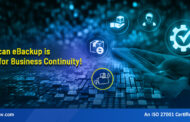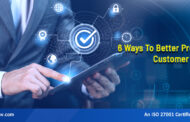In this technologically advanced world, methods and occurrences of identity fraud have become much sophisticated. When it comes to identity fraud, credit card fraud is the easiest form that takes place. Credit card fraud takes place in a variety of ways, almost every day. Unfortunately, none of the credit card users are completely safe from being a victim of credit card fraud, but having an appropriate knowledge of how it happens can make a big difference.
How Does Credit Card Fraud Happen?
- Lost or stolen cards: People lose their credit card too easily, it either gets misplaced or it is actually stolen. Thieves take advantage of these lost or stolen cards and immediately use the credit card information against the user.
- Emails scams: Through scams emails, hackers implant malware into user’s computer to record their key strokes. When a user makes an online purchase and type his/her credit card number into a website, that’s when these thieves record the credit card information.
- Fake shopping sites: Cyber-criminals create their own fake shopping website with a look and feel of a legitimate shopping website. These websites appear to offer fantastic prices and outstanding deals. With little knowledge, shoppers purchase from such sites and end up giving, his /her credit card details to cyber-criminals.
- Unreliable employees: For any credit card related issue, users generally call the customer care and provide the details of their card over the phone to a customer service agent. In this purpose user may end up giving the card number and even the expiration date. If the customer care agent is not reliable he/she may use this information to exploit the card holder.
- Trash documents: At times, due to time constrains or irresponsible behavior, people throw their crucial documents in trash without shredding. Thieves can get your information from your trash.
Therefore, it’s vital that you guard your credit card details and avoid falling victim to credit card fraud. Fraud protection practices include:
- Make sure your PC has up-to-date anti-virus software installed and also ensure that firewall is enabled so that you are secure on local networks and the Internet.
- Do not provide your login details or passwords in response to any unsolicited email and never click on the link embedded in such emails.
- Access internet banking or shopping sites by actually typing the website address into your browser, rather than clicking on the link in an email.
- Whenever you consider online shopping, make sure you are purchasing from secure websites that displays a security icon (locked padlock or unbroken key symbol) in your browser window.
- Do not provide your account number to anyone on the phone unless you’ve made the call to a company you know to be reputable.
- To protect your cards from getting stolen, carry your cards separately from your wallet. It can minimize your losses.
- If you do not require documents containing personal information don’t just throw them, destroy, or shred, these documents or receipts containing financial data.
For complete security of your computer and secured online banking and shopping experience use eScan Total Security Suite with Cloud Security. Click here: https://www.escanav.com/english/content/products/downloadlink/downloadproduct.asp?pcode=ES-TOTAL-SEC





